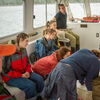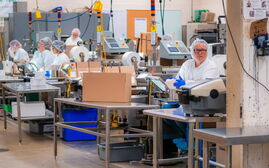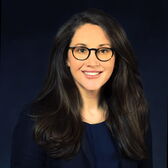
Business Leader: Scott Wellman, of Puritan Medical Products, is driving production of COVID test swabs
 Photo / Tim Geenway
Scott Wellman, general manager of Puritan Medical Products Co., helped oversee the company’s push to more than double in size and increase manufacturing of swabs to help diagnose COVID during the pressure of the pandemic.
Photo / Tim Geenway
Scott Wellman, general manager of Puritan Medical Products Co., helped oversee the company’s push to more than double in size and increase manufacturing of swabs to help diagnose COVID during the pressure of the pandemic.
Scott Wellman, Puritan Medical Products Co.’s general manager, helped oversee the Guilford-based company’s push to more than double in size and increase manufacturing of swabs to help diagnose COVID during the pressure of the pandemic.
Puritan received $140 million in federal money to boost production of swabs used in COVID tests. Puritan worked with Cianbro to find and build out factory spaces in Pittsfield. Then it turned to Bath Iron Works to develop the machinery needed in the factories. All this was done at a warp-speed pace to meet the need for COVID tests. Now, the company faces its first expansion outside of New England and increased demand for in-home testing supplies.
Mainebiz: Did anything stand out as especially hard about the past year or was it all just an impossible year?
Scott Wellman: I jokingly about halfway through last year started referring to every day as ‘Blursday.’ It kind of became that. We had one big project or challenge that we were trying to finish that bled into another one. Whether it was trying to hire people or build a plant or get equipment or deal with a government contract in a pandemic and it kind of all just blurred together.
Occasionally I’ll talk to a friend and they’ll stop me halfway through saying something and say ‘You hired 750 people in less than a year?’ And I said ‘Yeah, that’s what we needed to do.’ And we built a factory in two months and got it open and we’re building another one and more than doubling our size — it seems to be just what we’ve had to do and we haven’t really had time to stop and think about what it takes to get there and it’s not one person and it’s not 10 people, it’s been a huge team effort.
MB: Were there any things you’d like to do over and do differently from the past year?
SW: There were definitely some bumps in the road but I don’t think there were things we could have done entirely differently. Our whole model of the past was we built our own machinery, we developed our own machinery, we supported ourselves because that’s how we’ve been able to grow by using our own knowledge.
The need was so high that we had to very quickly change how we worked on things and trust key vendors to work with us. We had to learn fast. The team did a great job accepting that we were going to have to do things differently and work differently and communicate differently. That’s what we did.
For about the first four months of the pandemic, we had a group of about 10 people rotating in and out, every morning at 8 a.m. we took an hour and made sure everyone knew what was going on and that if we needed to make a decision, we were making decisions in those meetings. We weren’t taking weeks to decide on something, we weren’t even taking days. It was definitely a different way of doing things for us, but it worked.
MB: Was there anything that you learned from your workers or lessons that they taught you?
SW: I learned that the people we have working for us are probably some of the most dedicated people and hardest working people that I’ve worked with. We had to decrease the number of work days because people were so focused on trying to have a positive impact on the country and they were working 70 hour weeks, every single week, signing up for every shift of overtime we had. It was amazing to see it wasn’t purely about the financial impact to them. We were paying double time for overtime and we still are during the pandemic to make sure we reward people for helping the country and helping the company. But they just wanted to do what was right.
We had the first factory to get up and running in two months. We have the second factory up and running by the end of [March]. And we’re working on a new project to bring a third new factory, which will be outside of New England, and create another 800 jobs and grow the testing capacity in the country because it’s not just about COVID testing anymore.
The whole marketplace has changed and to travel, you need this test and that test, and schools want to have tests available, whether it’s for COVID now or flu in the future, and those of us who have kids, we want to be able to test whether our kids are sick at home and that’s really where the future is. Everyone is going to be able to do these tests at home, without a doctor, without a prescription, in the near future.
MB: Your fourth factory — the third new factory since the pandemic — how will that be funded?
SW: It’s government-funded. We’re working with multiple different states to see where the best location, the best work force, is going to be. The government just wanted us to diversify where we were locating because with Maine we do have sometimes some weather issues and it’s also more difficult to transport stuff from Maine, so the government just said there’s nothing wrong with Maine and you’ve had great success there, but can you look a little further away so we don’t have a situation where we have one major weather event causing inability for the whole country to have swabs.
It’s another hard shift for us because we are a family-owned business and we’ve always been based in Maine and based in rural Maine and when you start thinking we’re going to put a factory in another part of the country, we’re going to have to trust the people we hire in those locations to run this factory the same way we run things in Maine and bring our culture to a new group of people. We’re aiming to have that done by the end of the year.
MB: Have you gotten any takeover offers from larger companies? Does Puritan want to remain independent?
SW: There are constant streams — before the pandemic and after the pandemic — there’s always unsolicited phone calls, emails from M&A firms and investment banks. But we’re a family-owned company. This is third and fourth-generation family owned, celebrating 102 years this year. So there’s no desire for us to be anything other than a family owned business.

The success has been from that innovation over many years. Yes, is there demand in the market for someone to look to acquire us? I’m sure there is. But we want to continue to be a Maine-based family-owned business that supports its employees and supports its community and that’s really the position we’re staying in going forward.
MB: As a manager and leader of your company, who do you go to for advice? Who do you go to people for help when you need it?
SW: I go to a lot of different places. It depends on what the problem is. I have a great network and support staff, our senior management team, and a great team overall that I can go to internally.
If it’s more bigger picture situations, from over the course of many years, I’ve developed a network of people who I can call and just say ‘Hey, I have this situation going on.’ And we’re kind of an independent support network for each other. And they do the same thing to me. And these are people all over the country, different sized businesses, but I definitely reach out and talk to them and I’ve had a lot of those conversations over the past year.
In a lot of businesses, I have found that a lot of leaders are too proud to take advice from someone in a different part of the organization. That willingness to accept someone else’s point of view and work through a problem has allowed us to make these decisions in a very efficient way and not have major problems.












0 Comments